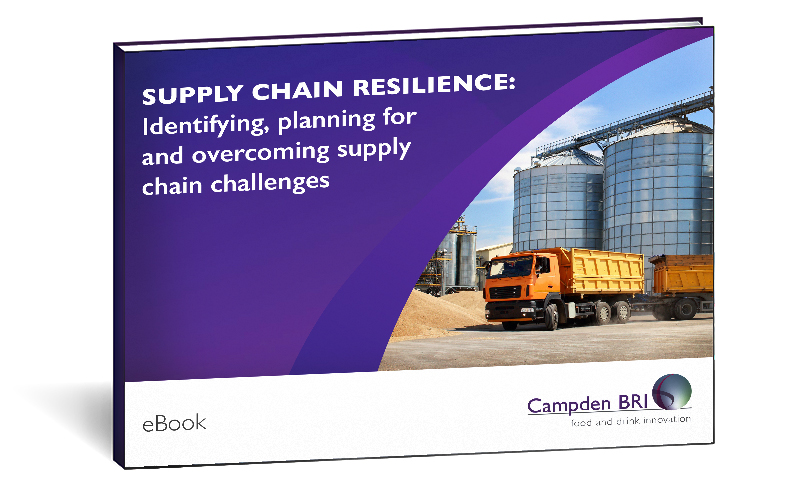Remote auditing to help you manage risk during the COVID-19 pandemic
19 August 2020 | Richard Leathers, Global Quality Lead
COVID-19 has created global issues that have dramatically impacted food business operators. One of the key consequences has been the inability for certification bodies, retailers and manufacturers to perform vital audits. In fact, China initially stopped auditing in February, with the rest of the world following suit in March.
This is a major concern as these audits ensure food safety and systems compliance throughout the supply chain. Without the transparency and assurance that these audits provide, food safety standards may fall by the wayside.
Download our FREE Supply Chain Resilience eBook today! Thrive in a changing environment by being prepared, agile and resilient.

Initial response
GFSI-recognised standards, such as BRCGS and FSSC22000, have seen audits put on hold and temporary extensions put on current certificated sites, while due diligence supplier audits have also been halted.
When will normal audit protocols return?
Not for a while – and, as you’d expect, a backlog of physical audits is extremely likely. The food industry ultimately needs to catch up with these audits, but how? Alternative risk-management tools are needed, and this need has forced all stakeholders to look at current and future pinch-points around food safety management systems assurance and compliance.
What’s the solution?
Blended audits (combining an offsite, remote assessment followed by an onsite audit) are an effective alternative to the normal protocol. They open the possibility of working through the backlog of audits that have been missed so far and may be used in conjunction with a risk assessment which considers:
- historical performance of the site including any risks identified from complaints and recalls
- availability of documentation and records in electronic form and willingness of the site to share these remotely
- capability of the certification body to conduct the remote audit (e.g. trained auditors, technical experts, etc.)
- access to an IT system that both the certification body and organisation will be able to use, and
- capability of the site’s staff to use technologies employed in remote audit techniques including onsite video (e.g. in production) and meetings.
Further still, there’s a plethora of technology that may be appropriate for auditing and assessments both locally and remotely such as smartphones, handheld devices, laptop/desktop computers, drones, video cameras, wearable technology, artificial intelligence (AI) and others.
Do they work?
Since the restriction of movement has affected physical onsite inspections, our team at Campden BRI has successfully performed six HACCP compliance audits using a variety of the tools and techniques noted above. Conducted overseas, these global audits demonstrated how blended audits ‘know’ no bounds when it comes to physical distance.
Preparation is key
One of the key elements in conducting these was the preparation required in advance. Receiving HACCP team meeting minutes, process flow diagrams and sections of hazard analysis documentation proved vital to advanced planning and on-the-day assessments.
How can we help you?
You may feel overwhelmed by the above, but we can talk you through these preparation steps, assist with your risk evaluations, conduct remote audits on your behalf or just provide general guidance. Simply get in touch and we’ll be more than happy to help. Contact us to find out how we can help. Email Support Team at support@campdenbri.co.uk or call +44(0)1386 842000 and they will be happy to direct your call to the relevant person.

About Richard Leathers
Richard Leathers joined Campden BRI in September 2011, and has worked in the food industry for 4 decades.
Richard started working with Dairy Crest and subsequently worked for both Heinz, Unilever, Best Foods and Kanes Foods. Working in the areas of HACCP and Quality Management Systems, Richard also has experience within the fresh produce sector, as well as analysis systems in the milling / baking areas, and is a BRCGS qualified lead auditor.
Richard has contributed to several publications and guidelines, including those for TACCP, VACCP and HACCP / Risk Evaluation and is also trained at advanced level by EHEDG (European Hygienic Engineering Design Group).
How can we help you?
If you’d like to find out more about remote auditing, contact our support team to find out how we can help.
Remote auditing webinar
This webinar explains how remote auditing works, how you can prepare for it and how to ensure food safety systems compliance during this challenging time.







